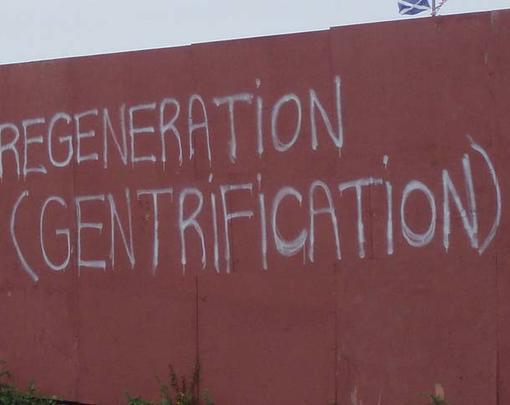Coffee drinkers and donut eaters learned something troubling recently. The owners behind JAB Holding Company — the German firm that owns or controls Krispy Kreme; Panera Bread; several coffee brands, including Keurig Green Mountain, Peet’s and Caribou; Pret a Manger and Einstein Bagels — revealed that the family fortune was in no small part built on their mid-century ancestors’ enthusiastic collaboration with the Nazi regime, including the use of forced labor in their factory and home.
It’s an open question whether the $11 million or so the Reimann family has promised to donate to an as-yet-unspecified organization is enough to atone for this shameful corporate heritage. But let’s, for the sake of argument, take the Reimanns’ denials of prior knowledge and their willingness to face their family’s awful history at face value.
What does it say about our economy when capital’s provenance is so opaque that even the direct descendants inheriting it did not understand where it came from, let alone the consumers whose relationship with that capital is mediated almost entirely through the artificial distinctions of brand identity?
Businesses, of course, need money to grow and scale. But our traditional picture of where this money comes from is increasingly out of date. Privately held companies like JAB Holding are today displacing traditional “shareholder capitalism.” The Wall Street Journal, for instance, found that in 2017 at least $2.4 trillion was privately raised in the United States — more than the $2.1 trillion raised through public markets.
This less regulated and less transparent private money is increasingly in the driver’s seat of the economy. For all its flaws, the model of the public corporation at least, in theory, promised opportunities for broad participation and the possibility of public oversight. The black hole of private finance, however, makes no such guarantees.
What happens when a company with a sense of obligation to their workers, their communities or the public good becomes just another asset in the portfolio of a private equity firm or transnational holding company? Often acquired by their new overlord with high levels of debt, these companies have lost much of their ability to focus on anything but their new owners’ bottom line.
Take the myriad coffee companies owned by JAB, for example: Whatever (vague) social responsibility or sense of mission Peet’s, Green Mountain, Stumptown or Intelligentsia may have once had is now irrelevant. If these coffee assets fail to produce above-market returns for JAB, they most likely will be stripped, merged or sold again and replaced with new assets. These kinds of owners have no long-term commitment to a company, its products or its employees. (If you don’t believe me, ask Sears.)
Other models that root capital in companies and communities are possible. Take Equal Exchange — another pioneer of craft coffee, similar in size to the Stumptown and Intelligentsia brands in the JAB portfolio. Equal Exchange has scaled significantly over its three decades of corporate life, but did so without selling out. It is a worker cooperative that has reached $70 million in annual revenues without needing to expose itself to public or private capital markets.
Equal Exchange is a worker cooperative that has reached $70 million in annual revenues without needing to expose itself to public or private capital markets.
Equal Exchange’s future is in the hands of its more than 120 worker-owners and their commitment to a vision of fair and equitable international trade. They have raised millions of dollars in outside equity to power their expansion through a pioneering model of ethical financing that keeps their workers in control, with investors subordinated. It’s an almost perfect mirror image of the “investor-first” pattern too common in the rest of the economy. It works for them and dozens of other companies of varying sizes that have adopted similar models.
Karl Marx wrote, in one of his more poetic moments, about the corrosive power of the modern economic system on traditional institutions: “All that is solid melts into air.” Without romanticizing the past, an important task for the left in the current moment is to figure out how we begin to reverse this process, and re-root the economy in the communities that depend on it.
While important, it’s not enough to demand reparations from the Reimann family or others who have profited from the horrors of an unjust past. We also have to dismantle the kinds of unaccountable concentrations of corporate wealth that have been built upon these unseemly fortunes. A place to start might be with policies that help workers in companies like the ones acquired by JAB Holding convert to worker ownership instead of being slurped up into transnational financial portfolios.




